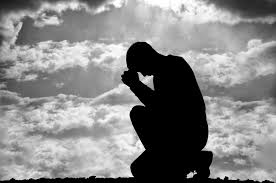 I first wrote this article in 2007 which was published that same year. When I came across it again recently I discovered there to be little content I would change and consider its message to have great importance some 8 years later - what do you think? When Jesus told his disciples not to take the top table at the banquet he not only offended the religious leaders of the day but also established the values upon which his kingdom would be built. Humility not pride would be chief amongst the virtues. The rule of the Pharisees would give way to the grace of the Christ and those who followed after him would be a called to march to the beat of a different drum. For Jesus, popularity, celebrity and status had little to do with the Kingdom of God. He wasn’t impressed with the religious leaders who ‘made their phylacteries wide and the tassels on their garments long’. He was in search of a different way. ‘The greatest among you will be your servant’, he said, ‘for whoever exalts himself will be humbled, and whoever humbles himself will be exalted’. I find Jesus’ teaching both refreshing and revealing, since behind those remarks is the truth about the Christian life: it can only be lived out of humility – a humility that comes through grace. ‘A man wrapped up in himself makes a very small bundle’, wrote Benjamin Franklin, his remarks suggesting some the reasons for the lack of greatness missing from so much of life. Have we become too obsessed with ourselves to care? Yet when we do see people breaking free from their own agenda in order to serve a greater cause something fresh and liberating is released and it is into this tired world of spin and glamour that a new humility can emerge. As a Pastor a lot of my time is spent seeking solutions to problems that will allow a person’s journey of faith to be processed. For my part I’ve discovered that honesty and vulnerability enables me to connect with people who’d otherwise remain isolated. I’m beginning to see that my own weakness can be the door through which people pass in order to process their pain. In this way, I become, if nothing else a conduit through which people can receive the love of Christ. My own vulnerability becomes the channel for their blessing. We are not here to compete with celebrity or develop our own theology of spin. Neither do we need to over play the triumphal message that promises so much but often delivers so little. What we do need is to take a fresh walk through the pain and brokenness of humanity and ask what our response ought to be. Like with Jesus, humility is still the vehicle through which grace is delivered and frankly, the only way to make sense of our world. How else are we going to work through the issues of injustice and suffering if not from the position of humility? Only recently I spoke with a man whose wife had died of cancer. He is a believer and a Christian leader, but as we reflected on the harshness of suffering he commented, ‘and I can understand why people don’t believe in God’. And I have to confess: So can I. If we don’t develop a better theology we stand the danger of being weighed in the scales and found wanting: delivering a faith that is high on style but low on substance. In fact if we fail to develop our theology of suffering we might be judged by future generations of being as liberal in our teaching as those German scholars who instructed their students to read the Bible with a pair of scissors in their hand: they cut out the miracles – we cut out the pain. Engagement should be our response suffering. We are not here to walk away but to walk through. We should recognise that humility is not a response to pain and suffering – it’s the most important response. I’ve discovered that it’s alright to say I don’t know but it’s not acceptable to say I don’t care. Pride seeks for an answer, we must justify our position and affirm our credentials; humility acknowledges our weakness, which in the face of pain becomes our source of strength. Here we find the place for the new humility to be birthed with leaders who will build communities of transparency and vulnerability. Churches where the lost can be found and the blind can see: a sanctuary for the broken hearted. The role is both pastoral and prophetic and will take dedication and courage to achieve but without it one wonders what will be left that rings true for a generation that has all but abandoned organised religion. Perhaps its time for us to heed the message of the prophet: ‘He has showed you, O man, what is good. And what does the LORD require of you? To act justly and to love mercy and to walk humbly with your God.
1 Comment
|
Author
Archives
December 2022
Categories
All
|
 RSS Feed
RSS Feed
